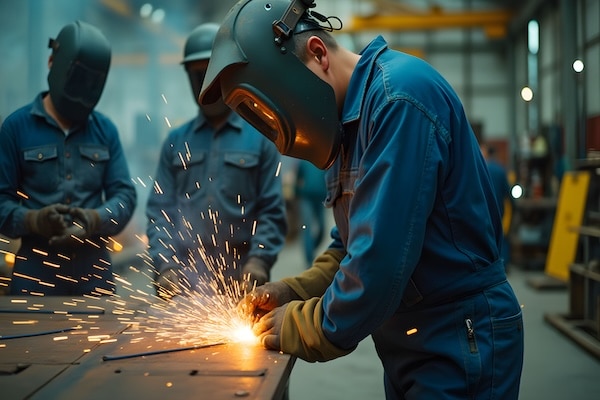Make Trade Skills Cool Again

In a recent episode of the Level Up Podcast, co-host Addison Wiggin put it simply—and powerfully:
“We need to make skills and trades cool again.”
It’s more than a catchphrase. It’s a cultural rally cry.
For too long, the trades have been quietly essential, but socially invisible. While skilled labor powers the backbone of our economy, it rarely shows up in career day presentations, glossy brochures, or aspirational TikToks.
But it could—and it should.
If we want to solve the labor shortage, fix the college debt crisis, and build an inclusive economy, we have to start by restoring the status of skilled work. That begins with something deceptively simple: changing what we celebrate.
From “Fallback” to “First Choice”
We’ve spent generations painting skilled trades as a backup plan. But in reality, many of these paths offer:
- Higher-than-average job security
- Faster entry into the workforce
- Low or no student debt
- Strong earning potential
- Pride in tangible, purpose-driven work
Still, the perception persists: that real success wears a suit and sits behind a desk. That’s the image we’ve sold. And now, we’re paying the price.
Why Image Matters
Culture shapes choices. What we glamorize—on screens, in classrooms, in conversations—impacts what students aspire to become.
To make skills cool again, we need to:
- Elevate the visibility of tradespeople as smart, skilled, and successful professionals
- Celebrate hands-on work as intellectually rigorous, creative, and impactful
- Give trades the media spotlight—in documentaries, advertising, and storytelling
Imagine a world where welders, electricians, and diesel techs are as celebrated as coders and entrepreneurs. That world is possible. But only if we change the narrative.
What “Cool” Could Look Like
“Cool” doesn’t mean gimmicks. It means:
- Respect for the intellect and precision behind skilled labor
- A sense of identity and community among trade students and professionals
- Cultural recognition that working with your hands is a mark of pride, not plan B
It means showing the next generation that building something real is just as valuable as managing a spreadsheet.
Final Thought
This series began with a simple question: What happened to the trades—and how do we bring them back?
The answer is complex. But one thing is clear: we don’t fix the system with policy alone. We fix it by changing hearts, minds, and culture.
At Dealing With Debt, we believe dignity is found in every path that builds a life. Whether it’s in a classroom, a workshop, a job site, or a business plan—we’re here to help you build with purpose. One choice, one skill, and one future at a time.
Thank you for joining us for the Rethinking Career Education series.

Responses